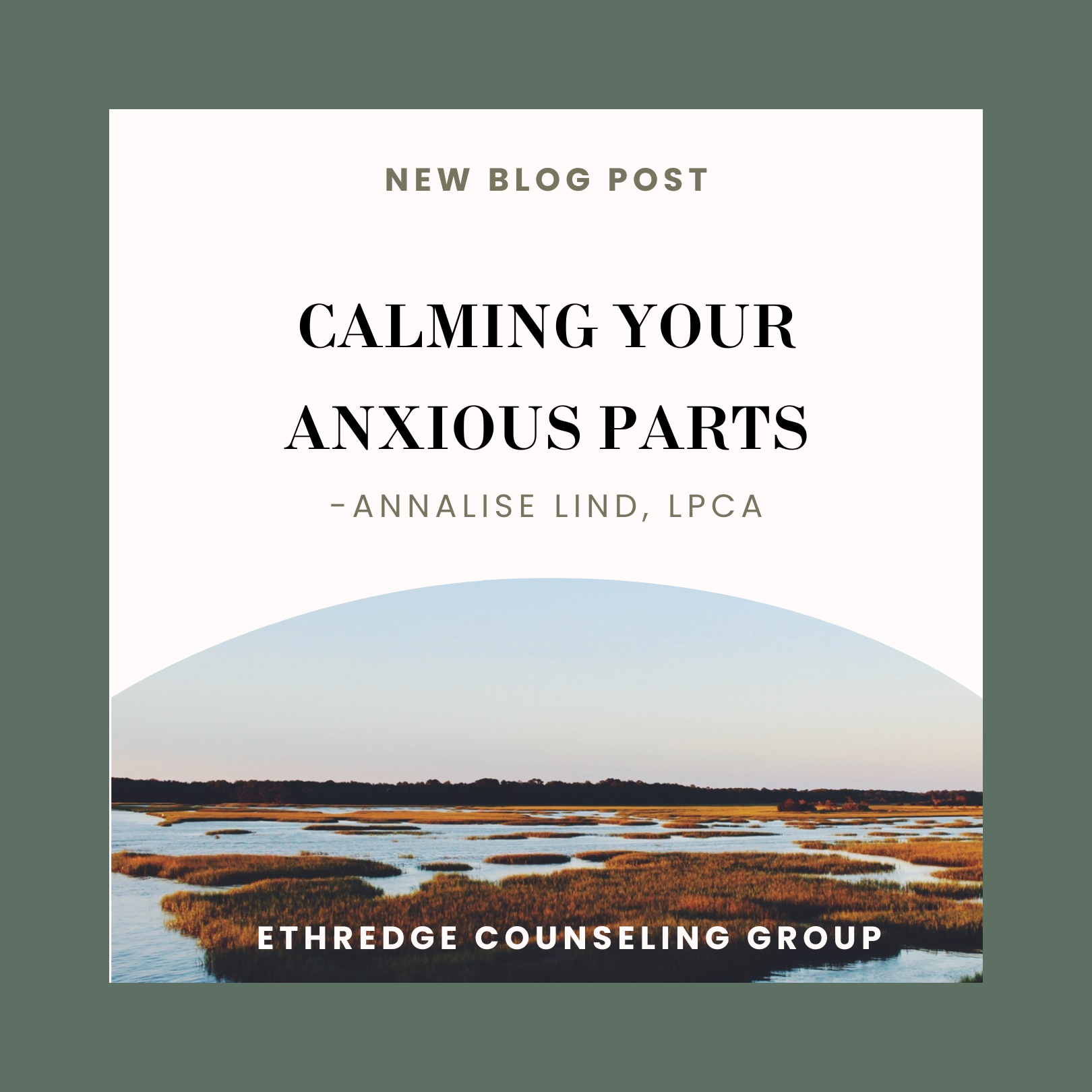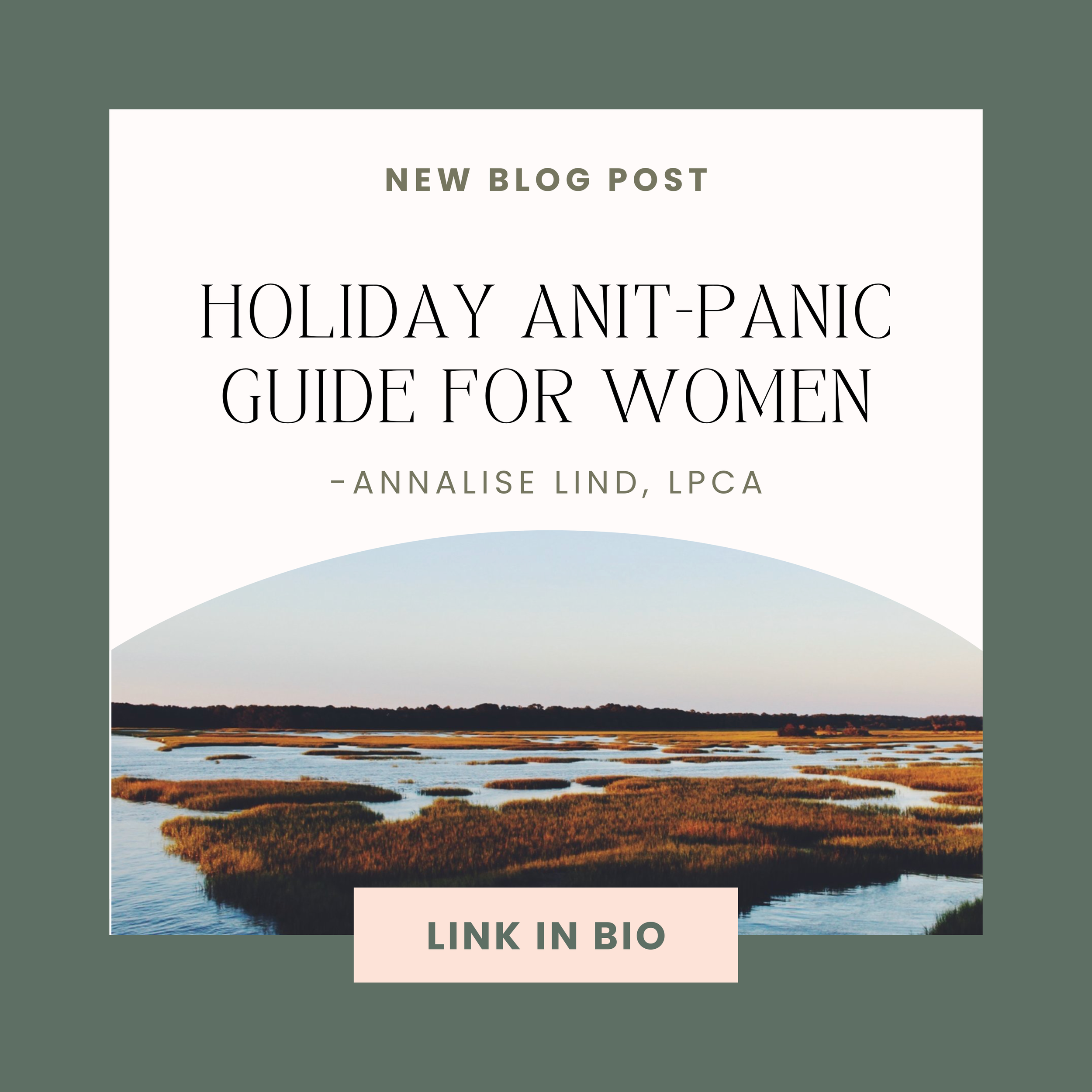
The ECG Blog
What Is Wellness? Part II
As we continue to explore the 9 areas of wellness, we consider how practical areas can greatly impact the other areas in ways we may not recognize. If your financial wellness is low and you can barely afford to meet your basic needs, it can be much harder to attend to your other areas. Likewise, if your occupational wellness is out of whack, and your work life is consuming you, you won’t have the time or energy to grow your other areas of wellness. Similarly, physical and intellectual wellness have direct implications for our body and minds. IF our bodies aren’t physically and mentally healthy, it’s hard to have any energy at all!
6. Physical- Physical wellness is often the most highlighted area of the 9 areas of wellness. Physical wellness includes engaging in a wide range of activities that support and nourish our bodies. Yes, this does include diet, exercise, and tending to our illnesses, but.. that means approaching the way we move and feed our bodies with love, not with hate and rigidity! We absolutely benefit by taking care of our bodies because it supports our mental health, reduces stress, and improves our ability to think clearly and have the energy to complete tasks. Also, physical health and exercise supports our brain chemistry to make us feel happier. Exercise releases endorphins and overtime helps to increase our serotonin levels overall! Physical wellness can also prevent illness and improve our quality of life. Your exercise routine could range from 20-30 minute walks, to kickboxing, to pilates, to tai chi. Improving your diet can be as simple as eating less processed food and more vegetables once or twice a week to consume more nutrients. And, we can honor our bodies by taking vitamins or going to see a doctor annually and when we notice problems show up. Engaging in physical wellness can help you connect more with others by exercising and eating healthy together. And your self-esteem can improve when you learn what your body is capable of and see how much easier you move through the week when you feed it and move it with love.
7. Financial- Financial wellness is an area of wellness that can also come with a lot of stress and can have big impacts on our other areas of wellness. Financial wellness implies that you can feel comfortable covering your necessities, like paying your monthly bills and unforeseen bills (ex: car troubles) and you can also manage to afford some of the extra things you want to be able to do or buy. It also means that you can approach finances and spending with some comfort while maintaining an understanding of the importance of budgeting. When we are struggling to make ends meet or have any spending money, we will often experience significant deficits in our ability to attend to the other areas of wellness. It’s unfair. While financial wellness is often improved with more wealth, the two are not directly related. Many people with much wealth may lack financial wellness because of the inability to ever find peace or relaxation with their money (this can have a lot to do with our childhood!) or with impulsive spending (buying those shoes might feel really good after you had a fight with a friend!). You can engage in financial wellness by regular budgeting and monitoring of weekly spending, carpooling, using public transportation, cutting back on expensive meals and drinks (why do espresso martinis taste so good but cost so much?), cooking with and buying groceries with roommates, spending more time outside to exercise vs paying for a gym, and taking advantage of free entertainment in the community. YNAB and EveryDollar are affordable apps and services that can help you budget and gain financial wellness.
8. Occupational- Occupational wellness is associated with the connection, purpose, and pride we may experience from our careers or the tasks, duties, or daily activities we complete in a day that contribute to our families or the world around us. If you are one of the lucky people that absolutely loves your job you probably are experiencing a great dose of occupational wellness! But if you are one of the many people that are feeling a lack of purpose or sense of passion at your job, like boundaries are constantly being pushed (more work, longer hours, moving expectations), or like you're stuck, you are likely struggling with your occupational wellness. Ways to improve your occupational wellness include finding the tasks and skills that you appreciate and enjoy and engaging in those as much as you can. If you aren’t passionate about the field that you are working on, maybe you can find tasks that you enjoy or get a sense of pride from. Maybe you love solving problems, building or creating things, networking, or working with numbers. If you’re feeling totally lost in your career or want to get to know more about what your strengths and areas of interest may be, check out O*Net to take a test that can match you with your career interests, strengths, tasks, and potential career options.
9. Intellectual- Intellectual wellness implies that we have activities or areas of interest to explore that mentally stimulate us. It also includes opening our mind and learning about new ideas or experiences. Intellectual wellness can include reading, completing puzzles or mind games, like sudokus or word searches. Or, it could include exploring our interests. If you love music, movies, makeup, history, mental health, current events, politics, or anything else, then researching or diving into these areas of interest can help stimulate your mind and make you feel connected to yourself and the world around you. Allowing your mind to engage in a mental activity that is not also tied with expectations (finishing a project at work or taking a test in school) can provide a liberating sense of ease. Also, if you’re overworked and your mind is constantly running, then this a good time to recognize your intellectual wellness may be exhausted. It might be time to look more into your other areas of wellness to seek fulfillment.
What Is Wellness? And Is A Face Mask Self-Care? (Part I)
“Self-Care” and “Wellness” are buzz words that get a lot of attention in today's media and influencer lifestyle. But what does it all really mean? What is wellness.. And is a face mask self-care?
Wellness has several definitions in research but they all roughly come to the same conclusion. Wellness is an active process of taking actions to improve your lifestyle in several different areas. Engaging in wellness can improve both your connection with yourself (helping you feel congruent in your identity) and your behaviors that impact your daily functioning (i.e. your lifestyle).
So, is a face mask self-care? It can be! Self-care includes any act that supports our growth, personhood, or daily appreciation of ourselves. Self-care can range from taking a bubble bath to doing our taxes, however, taking care of ourselves through acts of wellness typically requires more consistent and well-rounded behavior. So… yes, please enjoy your face mask! Just remember that it takes a little bit more work to practice wellness.
Practicing wellness has the potential to reduce or prevent stress, mental health symptoms, and burnout. Wellness can teach us better ways to deal with our stress and connect more with our authentic selves.
There are 9 areas of wellness that we can all engage in to help us have a more well-rounded lifestyles and more “whole” versions of ourselves. The 9 areas of wellness we will explore are social, physical, occupational, financial, emotional, cultural, creative, intellectual, and spiritual. You may associate wellness with the fancy, luxurious, and expensive spa in your area, but daily and accessible practices may be more likely to benefit you and your goals of self-improvement.
Social, Emotional, Cultural, Creative, and Spiritual (9 areas of wellness, Part 1)
There are a multitude of ways to help improve ourselves, our lives, and our dynamic with the world around us. The 9 areas of wellness (social, physical, occupational, financial, emotional, cultural, creative, intellectual, and spiritual) provide us with a road map to determine where we may be investing too much or too little of our time and energy.
Below, I will review 5 of the 9 areas of wellness by providing a potentially new definition of each with examples of different activities or actions that support building wellness in each of the areas.
Social- Social wellness includes having meaningful and balanced relationships with people in your life. Social wellness doesn’t necessarily mean having large groups of people that you know or “go out” with, although, having a solid and congruent community in your life can certainly influence a strong social wellness. You may have 2 friends that you feel like you can be your true self around. This might include being honest about your experiences or being able to be truly playful with. Or, you may have many friends that you enjoy sharing interests or activities with! One of the most exciting factors related to social wellness is that you can typically engage in social wellness by also engaging in all of the other areas of wellness. Exploring the other areas of wellness may even help you find some new activities to do with friends. Some examples of social wellness may include going to dinner or the movies, going on walks with friends, looking for sharks’ teeth at the beach, cooking together, making friendly relationships at work, and so much more.
Emotional- Emotional wellness is another area of wellness that easily blends into others. Emotional wellness includes consistently and genuinely expressing, sharing, and feeling your emotions as they rise and change daily. Sharing your emotions genuinely with friends, family, or even in professional relationships can help to build more authenticity with yourself and in your relationships. Practicing emotional wellness may also help you realize when you should set more boundaries and feel more connected with your aspirations. Journaling, therapy, and strong communication or conflict resolution skills are all very supportive actions that can improve your emotional wellness. You may also be able to build their emotional wellness through cultural, creative, spiritual, intellectual and physical activities.
Cultural- Cultural wellness is a unique and special area of the 9 areas of wellness. Cultural wellness includes connecting to your heritage, community, traditions, and family. The unique power of cultural wellness is that it can bring a certain zest and vitality to your life! You can grow your cultural wellness by exploring your family/ heritage and its traditions, food, and history. Cultural wellness may also include learning about the history of where you live and getting involved in the community. This may include learning about the systemic factors that affect you and the people in your neighborhood or city. Getting involved with your community, whether it’s fun community events or making a difference through local or larger politics, are both ways you can grow your cultural wellness. Cultural Wellness can help foster a deeper understanding of your identity and connect with those around you. Engaging in cultural wellness can easily influence your social, emotional, and intellectual wellness.
Creative- Creative wellness includes engaging in activities and practices that include innovation, building, art, intention, and self expression. When we think about creativity, we might think that we have to be blessed with artistic talent. But creative endeavors are not limited by drawing, painting, sculpting, and graphic design. We can get creative through cooking, baking, woodworking, makeup, building with blocks or legos, dancing, or through electronic platforms like minecraft (creating your whole world). If you are a lover of the arts, I hope you can practice your creations with compassion to yourself and expression of your ideas. For those of us who are not naturally gifted, putting pencil or a brush to the paper while freeing ourselves of expectations for how it turns out can be liberating, therapeutic, and definitely in support of our creative wellness.
Spiritual- Spiritual wellness is one of the 9 areas of wellness likely to elicit strong connotations. However, spiritual wellness can be practiced through endless ways. Spiritual wellness includes self reflection of, and connection to, our values and beliefs. It also includes the practice of mindfulness and acceptance. One can practice spiritual wellness by being in nature, meditating, going to or being a part of a church or religious group, having quiet time to engage in a mindful activity. You can grow your spiritual wellness by engaging mindfully through gardening, journaling, creating, or walking outside. You can practice spiritual wellness in any way that feels sacred to you.
Unraveling Anxiety and Attachment Styles
Anxiety is an emotion that can affect anyone, regardless of age, gender, or background. However, when it comes to understanding and managing anxiety, one's attachment style plays a significant role, particularly for women. Attachment styles influence how we connect with others, process emotions, and handle stress. In this blog post, we'll explore the intricate relationship between anxiety and attachment styles, offering insights and strategies for women to better navigate their emotional landscapes.
Understanding Attachment Styles
Attachment theory, developed by John Bowlby and later expanded upon by Mary Ainsworth, helps us comprehend the way we form emotional bonds with others. Attachment styles typically fall into four categories: secure, anxious-preoccupied, dismissive-avoidant, and fearful-avoidant (also known as disorganized). These styles are formed in childhood based on our early experiences with caregivers and continue to impact our relationships throughout our lives. It is important to note that these categories are fluid, rather than rigid, meaning that your attachment style may have components that have characteristics of several styles.
Embracing a Fresh Start: 7 Reason To Start Counseling in December
By taking the time to reflect, setting realistic goals, and building a support system, you position yourself for a more fulfilling and mentally healthy future. Embrace the opportunity to invest in your well-being this December, and step into the new year with confidence and resilience. What are you waiting for?
New To Charleston? 50 Things You Gotta Try!
Dr. Etta Gantt talks about new beginnings and how to bloom in a new city like Charleston, South Carolina, while building a sense of mental health and overall wellbeing. Dr. Etta Gantt is a licensed professional counselor and PhD at Ethredge Counseling Group.
Charleston, SC is a charming city with a rich history and vibrant culture. It’s can be a hard transition to a move to a new city Here are 50 ideas (plus 2 bonus ideas!) for things to do in Charleston for those of you who recently relocated:
How To Find A Trauma Therapist in Charleston, South Carolina
In the journey towards healing from trauma, finding the right therapist is a crucial step. Charleston, SC, with its rich history and vibrant community, offers a variety of mental health professionals. However, the process of identifying a suitable trauma therapist can be overwhelming. This blog post aims to guide individuals through the steps of finding a good trauma therapist in Charleston, SC!
1. Understanding Trauma Therapy:
Before embarking on the search, it’s important to understand that there are many approaches to treating trauma, and there are many personal styles of therapy that differ between therapists. I think it’s essential to take a few moments and ponder what type of therapeutic relationship you are seeking. Some trauma approaches can be a bit cold and distant, but very clinical, while others can be quite holistic, incorporating the body through somatic approaches. A trauma therapist’s goal is (or should be) to help you safely process emotions related to your past experiences in a specialized way. They utilize various therapeutic approaches tailored to each person's unique needs.
2. Researching Therapists:
Start by compiling a list of trauma therapists in Charleston. Utilize online directories, mental health websites, or ask for recommendations from friends, family, or healthcare providers. Pay attention to therapists' specializations, ensuring they have experience in trauma-focused therapy.
Escaping the Drama Triangle of Co-Dependency
The intricate dance of co-dependent relationships often unfolds within the framework of the Karpman Triangle, also known as the "Drama Triangle." This psychological model, crafted by Stephen Karpman, sheds light on the complex dynamics that characterize co-dependent interactions. At its core, the triangle identifies three central roles— the Victim, the Rescuer, and the Persecutor—each contributing to a toxic cycle. Escaping this drama triangle of co-dependency is all about recognizing your role in the drama triangle, and shifting to a more functional position.
18 Questions to Ask Your New or Potential Therapist/Counselor
Embarking on the path to healing from trauma is a courageous step, and finding the right therapist is so important to this journey. As you consider potential trauma therapists, know that it’s ok to ask questions and gather information so that you can make a decision you feel good about! Here are 18 questions to consider asking your potential therapist.
1. What is your experience in treating trauma?
Understanding a therapist's experience with treating trauma. Inquire about their years of practice, specific training in trauma therapy, and any certifications related to trauma treatment.
The Biggest Myths About Psychodynamic Therapy
Holistic psychodynamic counseling is a therapeutic approach that delves deep into the intricacies of the human mind and aims to provide a comprehensive understanding of an individual's emotional and psychological well-being. While this method has gained popularity for its effectiveness, it is not immune to misconceptions and myths. In this article, we'll debunk the five biggest myths of holistic psychodynamic counseling.
1. It's Only About Uncovering Childhood Trauma: One common myth is that psychodynamic counseling focuses solely on uncovering unresolved childhood issues. While this aspect is certainly a part of the process, psychodynamic counseling goes beyond childhood trauma. It aims to explore current patterns of thinking, feeling, and behaving, recognizing that our past experiences can influence our present actions.
A Guide to Using Superbills for Out-of-Network Counseling
With inflation and the cost of seemingly everything on the rise, it can be daunting to add a weekly service like counseling. Thankfully, there may be a way for you to get your insurance provider to cover the cost of counseling, making therapy more accessible to those in need. However, navigating the labyrinthine world of insurance claims and reimbursements can be daunting. Enter the "superbill" – a valuable tool that can simplify the process and ensure you get the most out of your insurance coverage for counseling.
What Is a Superbill?
A superbill is a detailed invoice or receipt provided by your therapist or counselor. It contains essential information about your counseling sessions, such as diagnosis codes, session dates, and fees. While out-of-network therapists don't bill insurance directly, they can provide you with a superbill that you can submit to your insurance company for reimbursement.




















